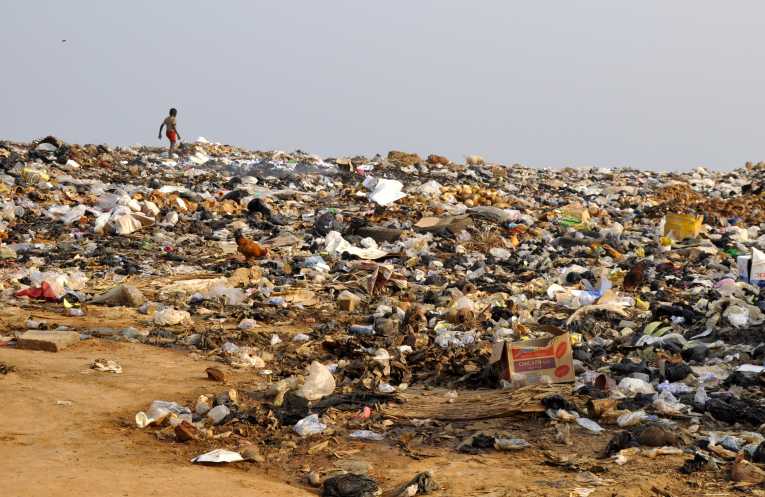Chemicals long-banned under international treaty, called PCBs, are still to be found in worryingly high concentrations off of the West African coast. And the source of these cancer-causing chemicals may well be uncontrolled burning of electrical waste, and the dumping of shipping, common in various West African countries. That's the conclusion from a multi-year survey of air samples taken from along the region's coast, published in the journal Environmental Science & Technology.
PCBs, or polychlorinated biphenyls, are organic compounds that were widely used in electrical components, such as transformers and wiring coatings. They have a similar chemical signature to dioxins, and notorious toxic effects for life - including skin lesions, breast and womb cancer, liver damage and retarded mental development. They also seriously affect wildlife, as well as human health.
As the widespread dumping and spilling of these dangerous chemicals came to light in the 1970s, they were banned by the US Congress in 1979. In 2001 most countries also signed up to the Stockholm Convention on Persistent Organic Pollutants, which prohibited their manufacture and controlled their disposal.
For this study, the research team, led by Rosalinda Gioia at the UK's Lancaster University, took readings from a survey ship plying the waters off of the coast of West Africa - as well as air samples on land, from countries such as Gambia, Sierra Leone, Ivory Coast and Ghana. What they found was surprising to them.
''We were not expecting to find such high levels of PCBs, highly toxic compounds that are considered as priority compounds by European legislation, in a region such as the western coast of Africa,'' said co-author Ailette Prieto, from the University of the Basque Country, in Spain. The values for PCB concentrations ranged from 10 to 360 picograms/m3, in a broad swathe along the coast, as well as on land.
Using the data from the samples, and putting them through particle dispersion models, the team was able to suggest the possible origins for the pollution lay - illegal waste dumps, and the massive ships' graveyard found in Mauritania. This new study only goes to reinforce the need for the industrial world to tighten up on the disposal of its waste - and stop using Africa as a toxic waste tip.










